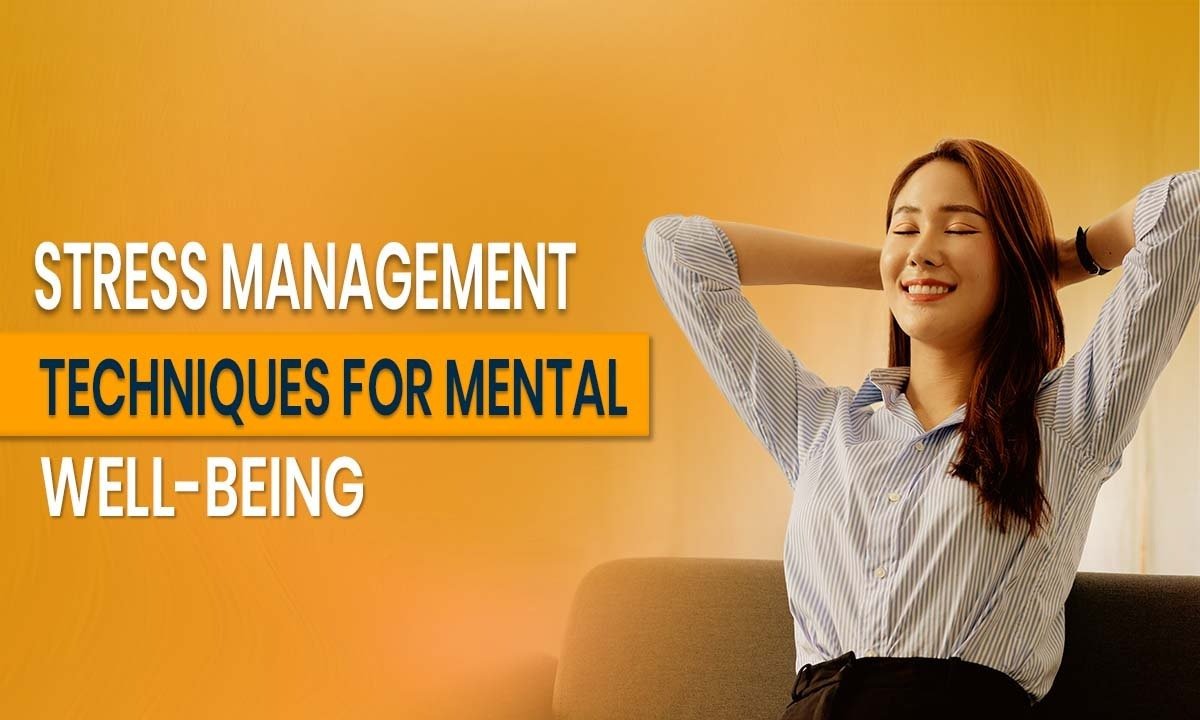Stress is something we all experience at some point, whether it’s due to work pressures, personal issues, or just the chaotic pace of life. But here’s the problem—stress doesn’t just stay a feeling. It can seep into every part of your life, affecting your physical and mental health. If left unchecked, it can lead to long-term health problems like anxiety, depression, or even cardiovascular issues. So, how do we deal with it? You’re in the right place. In this article, we will explore stress management tips, stress relief exercises, and stress reduction techniques that can help you reclaim control and protect your mental health.
Today, read this article till the very end because today I am going to give you some great information on mindfulness stress management, coping with stress, and a range of effective solutions that can truly make a difference.
Understanding the Problem: Stress and Its Impact
Stress is a natural response to challenges in life, but too much of it can harm your mental and physical well-being. The modern world demands more from us than ever before—tight deadlines, long hours, personal responsibilities, and often, little time for relaxation. And here’s the kicker: while some stress is manageable, prolonged exposure can be detrimental.
The Solution: Embracing Stress Management
So, how can we tackle this issue? The key is in adopting effective stress management tips that allow us to handle stress better, instead of letting it control our lives. Through stress relief exercises, stress reduction techniques, and practicing mindfulness stress management, we can drastically reduce the impact of stress on our lives.
Let’s dive in deeper to learn the best methods to deal with stress and reclaim your mental well-being.
Top Stress Management Tips You Must Try
Stress can feel overwhelming, but with the right techniques, you can learn to manage it effectively. Below are some proven stress management tips to help you regain your peace of mind:
- Practice Deep Breathing: Deep breathing exercises are an effective way to activate your body’s relaxation response. Try inhaling for four counts, holding for four counts, and exhaling for four counts. This simple technique can reduce anxiety and calm your mind.
- Exercise Regularly: Physical activity is one of the best stress relief exercises. It releases endorphins, which are natural mood boosters. Whether it’s yoga, walking, or running, regular exercise helps keep stress at bay.
- Maintain a Healthy Diet: Poor eating habits can contribute to stress. A balanced diet rich in fruits, vegetables, and lean proteins can help regulate your mood and energy levels.
- Get Enough Sleep: Lack of sleep can increase stress levels. Prioritize good sleep hygiene and aim for 7-9 hours of restful sleep each night.
- Take Breaks: Constant work without breaks can lead to burnout. Try the Pomodoro technique: work for 25 minutes, then take a 5-minute break. Repeat. It keeps your mind fresh and focused.
Stress Relief Exercises You Shouldn’t Skip
Sometimes, we need more than just a good night’s sleep or a walk around the block. Here are some stress relief exercises that you can practice:
- Progressive Muscle Relaxation (PMR): This involves tensing and then relaxing each muscle group in your body. Start from your toes and move up to your head. It helps release physical tension caused by stress.
- Tai Chi: This ancient Chinese martial art focuses on slow, deliberate movements. It’s a form of stress reduction technique that not only improves flexibility but also helps you relax your mind and body.
- Mindfulness Meditation: Sitting quietly and focusing on your breath can help you practice mindfulness. This reduces anxiety and allows you to reconnect with the present moment, making it a powerful mindfulness stress management tool.
Mindfulness Stress Management: What You Need to Know
Mindfulness is all about staying present and fully experiencing each moment. When you’re stressed, your mind often races to the past or future. Mindfulness helps you focus on the here and now. Here’s how to practice mindfulness stress management:
- Mindful Breathing: Focus solely on your breath. Feel it enter and leave your body. When your mind drifts, gently bring it back to your breath. This practice helps center your thoughts and reduces stress.
- Body Scan: Lie down and mentally scan your body, starting from your toes and moving up to your head. Notice any tension and release it as you go along. This technique helps reduce physical stress and promotes relaxation.
- Gratitude Practice: Focus on what you’re thankful for. By practicing gratitude, you can shift your mindset from stress to appreciation, which has a powerful effect on your mental well-being.
Coping with Stress: Tips for Lasting Relief
Coping with stress doesn’t just involve temporary fixes—it’s about creating lasting habits that keep stress levels in check. Here are some strategies for coping with stress effectively:
- Identify Stress Triggers: Recognizing what causes stress is the first step in dealing with it. Keep a journal of your stressors and review it to identify patterns. Once you know your triggers, you can work to avoid or manage them better.
- Social Support: Don’t hesitate to lean on friends, family, or colleagues. Talking about your stress can help you process it and feel understood. Social support is essential for mental well-being.
- Laugh Often: Laughter truly is the best medicine. Watch a funny movie, tell a joke, or simply spend time with people who make you laugh. Laughter lowers cortisol (the stress hormone) and boosts your mood.
- Seek Professional Help: If stress is overwhelming or leading to anxiety or depression, consider seeking professional help. A therapist can provide personalized tools and coping strategies to help you manage stress effectively.
Athena Luxus: Your Partner in Mental Well-being
At Athena Luxus, we believe that mental health is just as important as physical health. If you’re struggling with stress, anxiety, or addiction, we are here to support you. Our Luxury Rehab Center in Delhi offers a range of services, including mindfulness stress management, therapy, and personalized care to help you overcome stress and addiction.
If you’re struggling or trying to change yourself, a rehabilitation center like Athena Luxus can provide the support and tools you need to get back on the right track. Don’t wait for stress to consume you. Remember, anxiety keeps increasing with the number of days, and therefore, the best way to protect your mental health is to contact Athena Luxus as soon as you realize that you have a problem.
Final Thoughts
Hope you liked the information we provided, and if you’re facing any mental health struggles, don’t hesitate to reach out to us. Whether you’re dealing with addiction or stress, we offer comprehensive mental health services and support.
Patient Experiences
- Arun Sharma: “Athena Luxus helped me manage my stress through mindfulness and therapy. It was a life-changing experience.”
- Priya Patel: “The exercises and therapy sessions really helped me cope with stress. I feel much more in control now.”
- Amit Verma: “Thanks to Athena Luxus, I’ve learned how to manage stress and anxiety effectively. It has made a huge difference in my life.”
- Neha Reddy: “I’ve been through a lot of stress, but Athena Luxus’ approach helped me develop healthy coping strategies.



